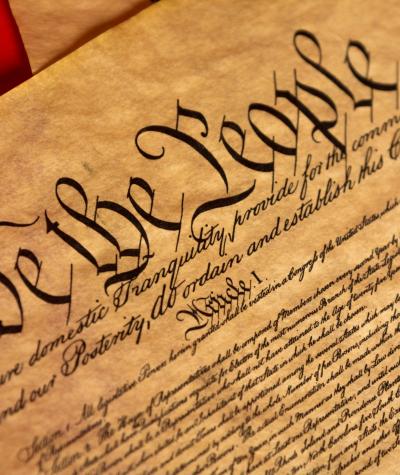The scandal surrounding President Trump’s former National Security Adviser Michael Flynn is indicative of why the Constitution bars U.S. officials from accepting anything of value from a foreign government: to prevent even the possibility of influence by foreign powers.
Flynn resigned on Feb. 13 following revelations that he engaged in potentially illegal communications with Russia and then lied about it to administration officials. The F.B.I. had been investigating Flynn’s contacts with Russia, and as the New York Times reports:
“In addition, the Army has been investigating whether Mr. Flynn received money from the Russian government during a trip he took to Moscow in 2015, according to two defense officials. Such a payment might violate the Emoluments Clause of the Constitution, which prohibits former military officers from receiving money from a foreign government without consent from Congress.”
Military officers remain subject to the Emoluments Clause even after retirement, because they may be recalled to service.
The Emoluments Clause, of course, has been in the spotlight recently, given President Trump’s insistence on maintaining a financial stake in his far-flung business empire. And the Flynn affair suggests how Trump’s financial conflicts-of-interest will continue to plague his presidency.
The Constitution’s Framers were concerned that an official who receives something of value from a foreign power might be in a position to compromise his loyalty towards the best interests of the United States – particularly because a foreign emolument is likely just one piece of a broader influence effort by foreign powers.
Here, Flynn reportedly accepted an honorarium from the Russian government for appearing on a panel at a 2015 gala in Moscow, where he sat at a dinner table with Russian President Vladimir Putin.
The following year, Russia allegedly interfered with the 2016 elections, and after the U.S. retaliated by imposing sanctions, soon-to-be National Security Adviser Flynn broke with protocol and reportedly sought to undermine the Obama administration’s policy by suggesting Trump would revisit the matter.
There is no indication that Russia’s payment to Flynn directly led him to shift his approach to U.S.-Russia relations. And there is no way of knowing whether Flynn was consciously thinking about the payments he'd received when he discussed sanctions with Russia (and then lied about it).
But matters of influence rarely come down to an express quid pro quo transaction. The Emoluments Clause doesn’t require proof of a corrupt bargain; instead, the Framers forbade U.S. officials from accepting anything from foreign governments that might lead to corruption.
This, of course, is why Trump maintaining a financial stake in his business empire continues to pose constitutional problems.
The same day Flynn announced his resignation, the Associated Press broke the story that China granted Trump long-sought trademark rights. According to the AP, for the previous decade, Chinese courts had repeatedly rejected Trump’s efforts, but his fortunes shifted dramatically after he won election—raising serious concerns about whether China granting these valuable property rights to President Trump was a means of exerting influence.
China already rents space in Trump Tower, and a Chinese government-owned bank is a major lender to another Trump-owned office building. And foreign governments have already expressed a willingness to curry favor with the Trump administration by staying in, or holding receptions in, Trump hotels. Foreign governments will also be in a position to offer Trump significant financial benefits by granting permits and permissions to Trump properties around the world. Trump’s Mar-a-Lago property recently doubled its membership fee to $200,000—and Trump refuses to disclose whether any foreign officials are members or have paid the jacked-up fee.
Just as Flynn’s payment from Russia would be no less problematic if he “earned” it as a speaker’s fee, even fair market value transactions between foreign governments and Trump’s companies run afoul of the Emoluments Clause: the constitution prohibits the acceptance of “emoluments...of any kind whatever."
Ultimately, these matters concern a central issue of a representative democracy: whether officials are acting in the best interests of the United States, or whether their judgment is clouded by outside influence.
